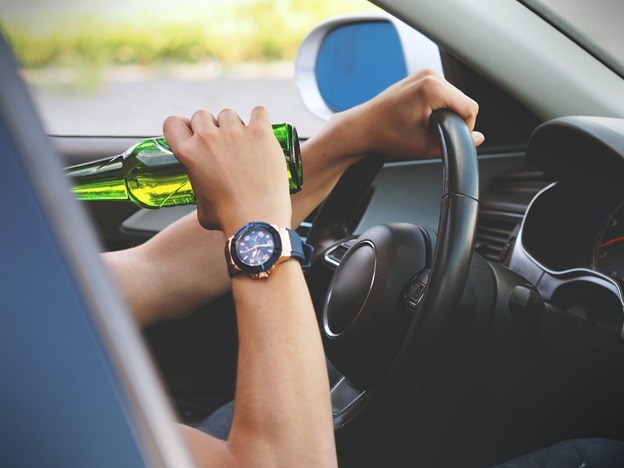As a responsible citizen, it is your duty to avoid taking control of any car after using drugs or drinking alcohol. However, you may make this mistake and get charged with driving under the influence. When this happens, you should know how to handle the situation to avoid making it harder than it should be. Read on for 10 tips for dealing with a DUI charge.
1. Cooperate with the police officer
When you get pulled over, the first thing to do is to ensure that you do not make the situation worse than it already is. Whether you were adhering to the speed limit or not, avoid arguing with the police officer. While it can be challenging to control your emotions or anger when intoxicated, it is best to remain composed and cooperative. This is because the officer’s statement will be given priority in court.
2. Do not take the portable breath test
Most police officers in the United States often carry around a portable breathalyzer and request a test after pulling you over. If you take the test and the results are positive, the police officer could testify against you. You should politely decline to take this test to avoid increasing your sentence.
However, if you voluntarily do the test before contacting your attorney from San Francisco DUI Lawyers, be sure to let them know to avoid any last-minute surprises that could compromise the case.
3. Do not do the field sobriety test
All field tests administered by the police officers are often optional. Whether it is a watch-the-pen test, walk and turn, finger-to-nose test, or one-leg stand, be sure to let the officer know that you prefer not to take the test. The sobriety test results depend on how the officer analyzes the situation, so they cannot be trusted as most officers are not trained or capable of administering them. They also do not take the body mass index into account.
4. Do not resist arrest
From the moment you are pulled over, your behavior is under scrutiny, and anything you do could be used in your favor or against you in a court of law. If you allow the officer to arrest you, your case could be handled with leniency. Driving under the influence has severe legal consequences, so do not let it escalate into a criminal charge by resisting arrest.
5. Accept the implied consent test
Once you are arrested, the police officer will ask you to perform an implied consent test. It could be a blood test, urine test, or breath test. Since most states consider driving under the influence a severe offense as it is one of the leading causes of accidents, implied consent tests are mandatory, so you should cooperate with the officers. Failing to perform these tests could have severe repercussions, including termination of your driving license. Opt for a breath test instead of a blood or urine test to increase your chances of winning your case in court. It is easier to disprove the validity of a breath test.
6. Have an independent blood test
After the arresting officer has performed the blood, urine, or breath test, they often ask whether or not you want to take an independent blood test. This is not only a chance to prove your innocence as a hospital of your choice conducts the examination. It is also a get-out-of-jail-free card, so you should agree to it. However, if the officer forgets to inform you or does not allow you to take the test, it could be used in your favor in a court of law as the cop has suppressed evidence and your fundamental right.
7. Hire an experienced attorney as soon as possible
Being pulled over does not necessarily make you guilty of the allegations tabled against you. You still have a constitutional right to a lawyer, so you should utilize it. A prosecutor or police officer can pressure you into providing a lot of information that could incriminate you, so it is best to have an attorney beside you. Your attorney can advise you on the best test to take and even help you gather information to prove your innocence. Be sure to opt for a lawyer familiar with the local laws, specializing in handling DUI charges. Ensure that the lawyer has many years of experience to ascertain that your case is held with the best care.
8. Write your version of the police report
Take time to recall and write down what happened before and after your arrest while it is still fresh in your mind. If there is a legal issue to be argued in court, either dismissal of charges or suppression of evidence, it is likely to be the officer’s word against yours. The judge and jury will view you as the drunk one and the police officer the sober one, so writing down your recollection of the happening before and after your arrest can help boost your credibility. Remember to include the officer’s name and badge number in your notes, then give a copy of your version of the report to your attorney to help them build a strong case.
9. Uphold good behavior after bail
If the DUI charges against you do not involve an accident, your attorney can help you get a lighter punishment. However, this is only possible if you avoid any behavior that might land you in trouble or get arrested after posting bail.
10. Complete the punishment
Whether your lawyers manage to get your charges reduced to the minimum or not, you will have to pay the consequences. Ensure that you complete the punishment or pay fines promptly to avoid getting in any more trouble.
Endnote
The best way to deal with a DUI charge is to avoid drinking and driving. If you have to drink and travel, always have a designated driver. However, if you are faced with a DUI charge, implement the above strategies to prevent more severe consequences.

